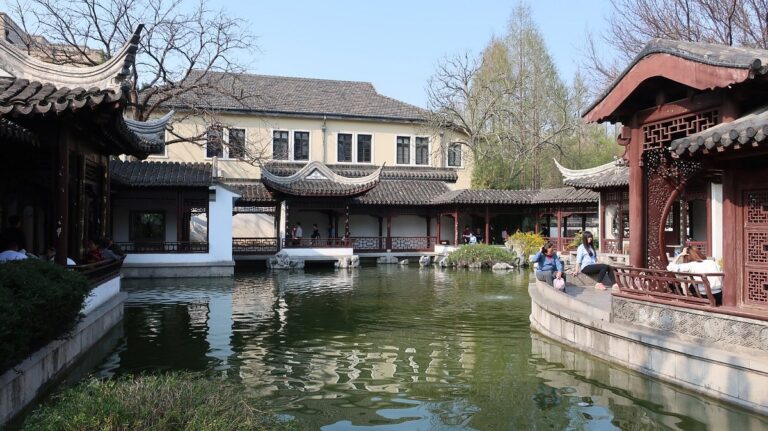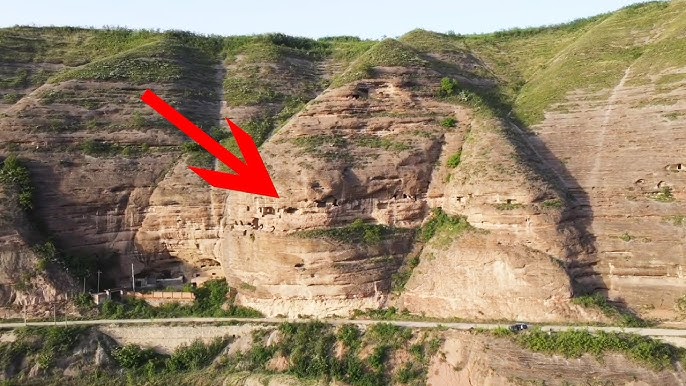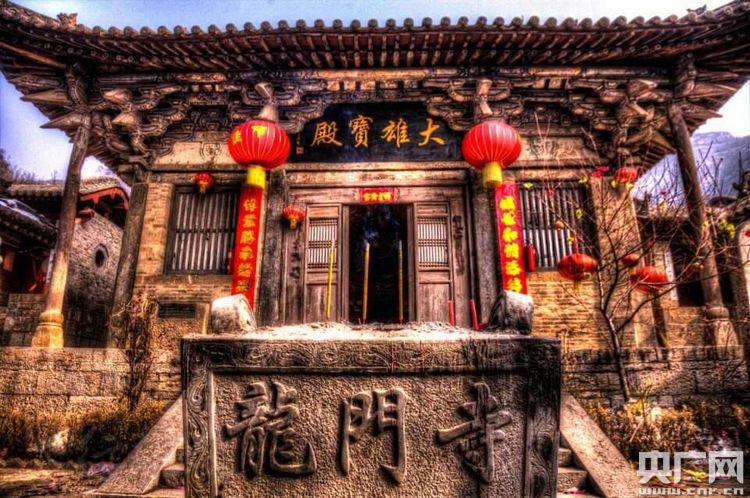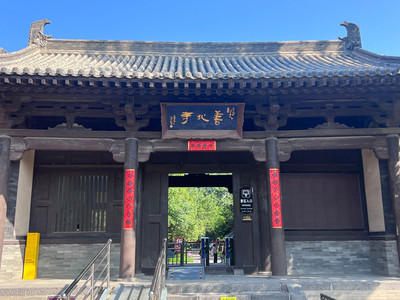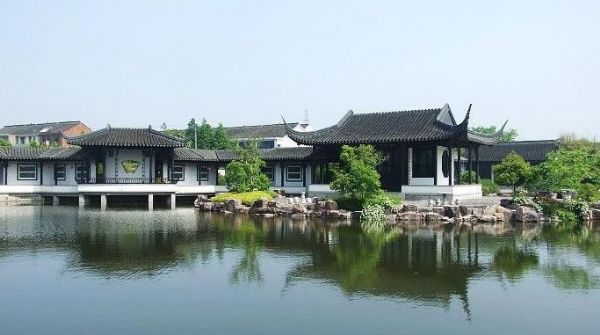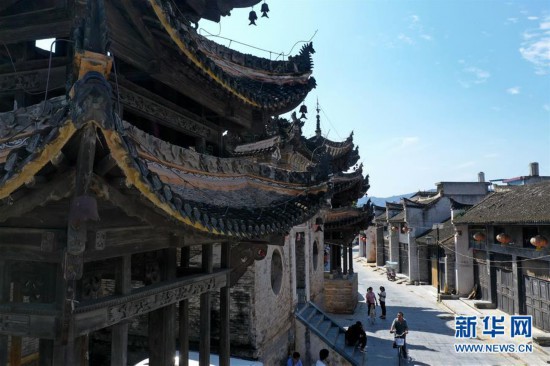Top 10 Must-See Attractions in Bengbu’s Enchanting Yuhuicun Yizhi
An Essential Guide to Visiting Bengbu Yuhuicun Yizhi
In This Guide
- An Essential Guide to Visiting Bengbu Yuhuicun Yizhi
- The Rich History of Bengbu Yuhuicun Yizhi
- Main Highlights: What to See at Bengbu Yuhuicun Yizhi
- Planning Your Visit: A Practical Guide
- Tickets, Hours, and Booking
- How to Get There
- Local Cuisine and Accommodation
- Frequently Asked Questions
- Final Thoughts on Your Trip
Nestled in the historical heart of Anhui Province, the Yuhuicun Site (禹会村遗址) is a treasure trove of archaeological wonders that beckons history enthusiasts and curious travelers alike. Located on the southern slope of Tushan Mountain, this expansive site spans approximately 600,000 square meters, making it the largest known relic of the Longshan culture—an ancient civilization that flourished around 4,000 years ago. Renowned as a pivotal location where legendary figures gathered, the site is steeped in rich lore, notably linked to the mythical Emperor Yu, who is said to have convened leaders from various states here.
Discovered in the early 2000s, the Yuhuicun Site has unveiled a wealth of artifacts, including intricately crafted pottery, animal bones, and ceremonial tools that illuminate the social and spiritual lives of its ancient inhabitants. Excavations conducted between 2007 and 2010 revealed significant structures, such as large ritual platforms and burial pits, hinting at the complex rituals and communal gatherings that once took place. This site not only offers profound insights into the Longshan culture’s development but also serves as a critical link in understanding the broader narrative of early Chinese civilization.
As one of the key archaeological parks in China, Yuhuicun invites visitors to step back in time and explore the foundations of a culture that shaped the region. Whether you’re a history buff or simply seeking a unique adventure, a trip to Yuhuicun promises to be an enlightening journey through the annals of ancient history, set against the stunning backdrop of the Huai River.
The Rich History of Bengbu Yuhuicun Yizhi
The Yuhuicun Yizhi (禹会村遗址), situated at the foot of Tushan Mountain in the Huai River basin, is a significant archaeological site located in Bengbu City, Anhui Province, China. This site, also known as Yuxu, has been dated back to the late Longshan culture period, approximately 4,380 to 4,140 years ago. It offers a fascinating glimpse into the life and rituals of ancient Chinese societies during a pivotal time in the region’s history.
The Yuhuicun site spans approximately 600,000 square meters, making it one of the largest Longshan culture archaeological sites discovered in the Huai River valley. Archaeological excavations commenced in 2006 and continued through 2010, revealing a wealth of artifacts that have proven invaluable for understanding the cultural and ceremonial practices of the time. Among the findings are pottery, grinding stones, and remnants of animal bones, indicating a society that engaged in both agricultural and ritualistic activities.
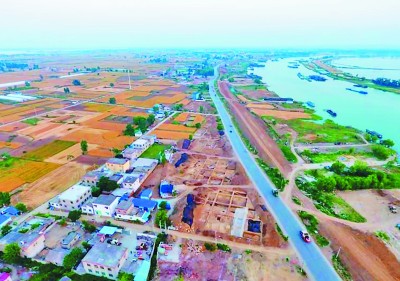
Bengbu Yuhuicun Yizhi.
Historically, Yuhuicun is often associated with the legendary figure of Yu the Great, who is said to have held assemblies with various lords at this site, as recorded in ancient texts such as “Zuo Zhuan” and “Shiji.” The narratives surrounding Yu the Great emphasize his role in controlling floods and promoting agricultural development, themes that resonate deeply within Chinese cultural consciousness. The name “Yuhuicun” itself, translating to “Yu’s Meeting Village,” highlights its mythological significance.
The site features various archaeological structures, including circular pits, rectangular earthworks, and large ceremonial platforms that were likely used for rituals. The discovery of multiple sacrificial pits, each containing a range of pottery and animal remains, suggests that Yuhuicun was a major center for ceremonial practices, reflecting the complex societal and spiritual life of its inhabitants.
In 2007, the site was included in the National Civilization Origin Project, and by 2013, it was designated as a key cultural relic protection unit by the State Council. These recognitions not only underscore the site’s archaeological significance but also its role in the broader narrative of Chinese civilization’s development along the Huai River.
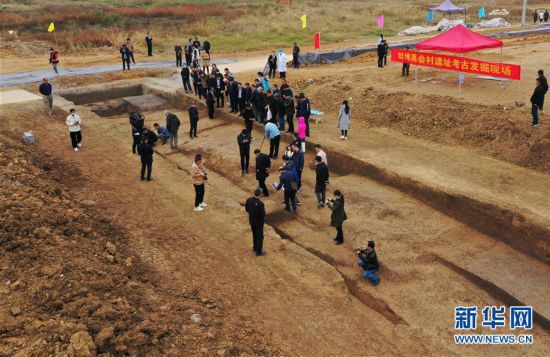
Bengbu Yuhuicun Yizhi.
Moreover, the Yuhuicun Yizhi represents a critical juncture in the evolution of regional cultures, illustrating the interconnectedness of communities through trade and ritual. The artifacts unearthed at this site demonstrate similarities with other cultures in the lower reaches of the Yellow River and the Yangtze River, suggesting that the Huai River valley was an important corridor for cultural exchange during the Neolithic period.
Today, as an archaeological park, Yuhuicun Yizhi serves as a vital resource for researchers and visitors alike, offering insights into the ceremonial life of ancient China while standing as a testament to the region’s rich historical tapestry. The ongoing efforts to preserve and publicize the site reflect an increasing recognition of its importance in understanding the roots of Chinese civilization and the cultural dynamics that shaped the ancient world.
Main Highlights: What to See at Bengbu Yuhuicun Yizhi
Bengbu Yuhuicun Yizhi, also known as the Yuhui Village Ruins, is a fascinating archaeological site located in the outskirts of Bengbu City, Anhui Province. This expansive site, covering approximately 600,000 square meters, is recognized as one of the largest remnants of the Longshan Culture in the Huai River basin. Here are some key highlights that make this site a must-visit for history enthusiasts and travelers alike:
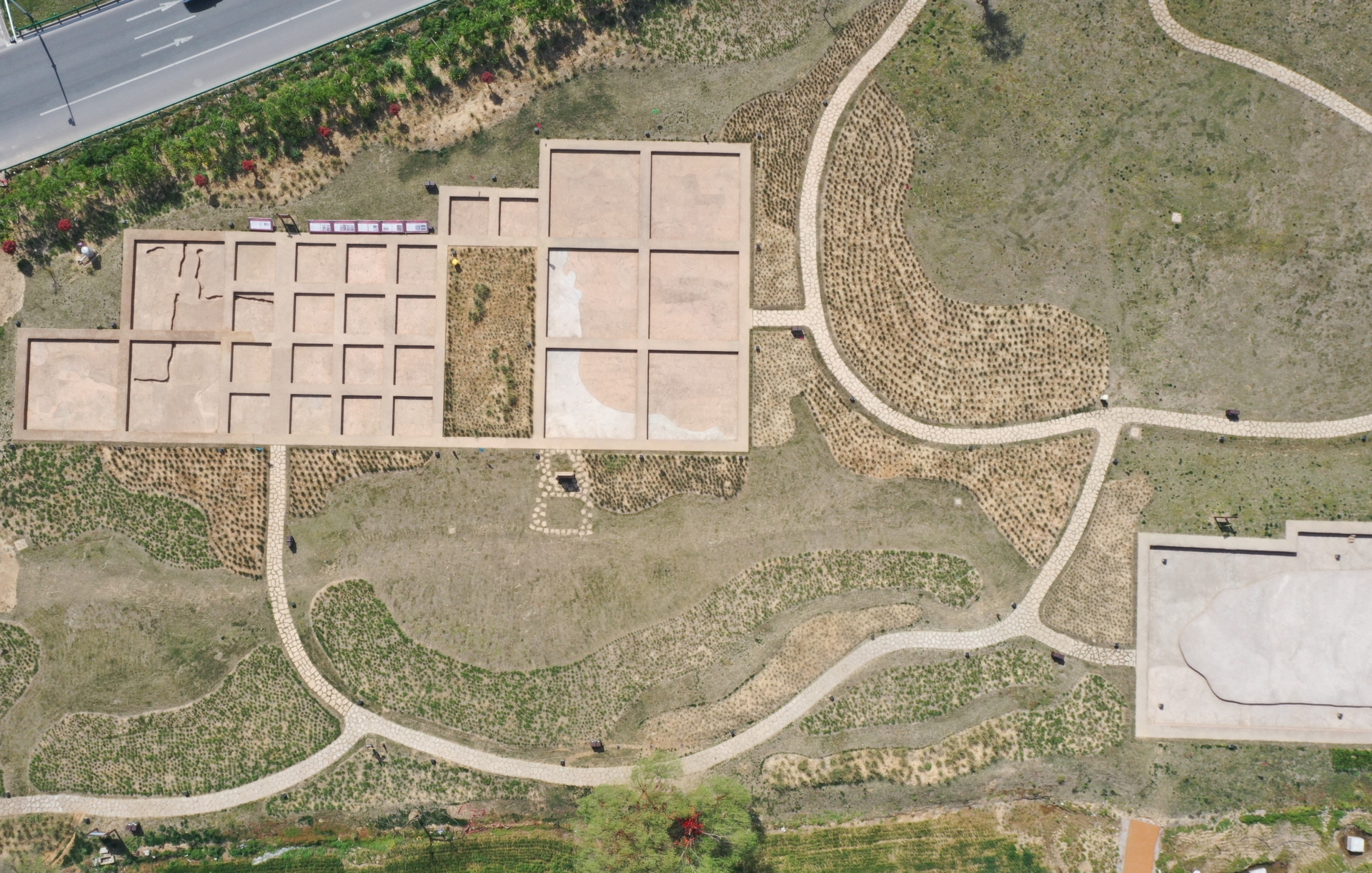
Bengbu Yuhuicun Yizhi.
-
Cultural Significance: The Yuhuicun Ruins are believed to date back over 4,000 years, aligning with the late Longshan Culture period, a pivotal era in China’s ancient history. This site offers invaluable insights into the early stages of civilization in the Huai River region, contributing significantly to our understanding of cultural evolution during this time.
-
Archaeological Discoveries: Excavations conducted by the Chinese Academy of Social Sciences from 2007 to 2010 revealed an impressive array of artifacts, including pottery, grinding stones, and animal bones. Notably, the discovery of ceremonial pits and large sacrificial altars indicates the site’s importance as a center for ritualistic practices, shedding light on the spiritual and social dynamics of early Chinese society.
-
Monumental Structures: One of the standout features of the Yuhuicun site is a massive ceremonial platform constructed from layered soils of different colors. This platform, measuring over 2,500 square meters, was likely used for significant ritual gatherings, highlighting the organized and complex nature of the community that once thrived here.
-
State Protection: Recognized as a national cultural heritage site and a key archaeological park, Yuhuicun Ruins were designated as a protected unit by the State Council in 2013. This status not only underscores the site’s historical importance but also promotes ongoing research and preservation efforts, making it accessible to visitors.
-
Mythological Connections: The site is steeped in legend, believed to be the location where the ancient leader Yu the Great convened regional lords to discuss flood control measures, as recounted in historical texts. This connection adds a layer of intrigue, intertwining myth and history.
-
Visitor Experience: The Yuhuicun Yizhi has been integrated into regional tourism initiatives, offering visitors a comprehensive experience that combines education and exploration. The surrounding area features amenities for travelers, making it easy to immerse oneself in the rich history and culture of the site.
Visiting the Yuhuicun Ruins provides a unique opportunity to connect with China’s ancient past, explore significant archaeological findings, and appreciate the profound legacy of early civilizations that shaped the nation. Whether you are a history buff or a casual traveler, this site promises a captivating journey through time.
Planning Your Visit: A Practical Guide
Practical Guide to Visiting Yuhuicun Yizhi (禹会村遗址)
Location and Access
Yuhuicun Yizhi, also known as Yuhui Village Ruins, is situated at the southern foothills of Tushan, along the eastern bank of the Huai River in the Yuhui District of Bengbu City, Anhui Province. The site is easily accessible by public transportation, with local buses and taxis frequently servicing the area. If you are driving, major highways connect Bengbu with nearby cities, and on-site parking is available.
Opening Hours
The site is open to visitors year-round, although specific hours may vary depending on the season and local events. It’s advisable to check ahead for any special closures or events that may affect access.
Admission Fees
Entry to Yuhuicun Yizhi is typically free, but guided tours or special exhibitions may require a ticket. Always confirm the latest admission policies before your visit.
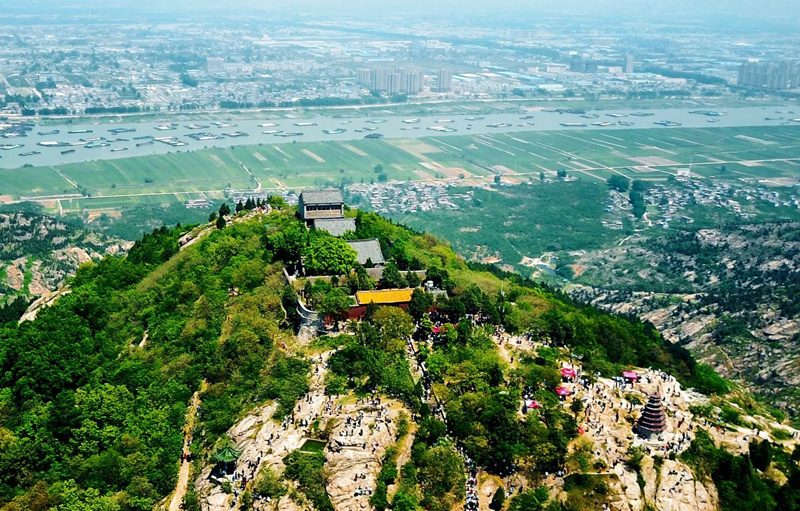
Bengbu Yuhuicun Yizhi.
Best Time to Visit
The best time to explore Yuhuicun Yizhi is during spring (March to May) and autumn (September to November) when the weather is mild and the surrounding landscape is particularly beautiful. These seasons also coincide with local cultural festivals, enriching your experience with traditional performances and activities.
What to See and Do
Yuhuicun Yizhi is renowned for its significant archaeological findings from the Longshan culture, dating back approximately 4,000 years. Here are some highlights:
-
Archaeological Remains: Explore the extensive site, which includes ancient ditches, circular pits, and hearths. Look out for the ceremonial platforms and burial sites that reflect the area’s rich historical significance.
-
Artifacts: The site has yielded numerous artifacts, including pottery, stone tools, and animal remains. Visiting the on-site museum (if available) can provide further insights into the findings.
-
Cultural Interpretations: Engage with local guides who can offer interpretations of the site’s historical context, including its connection to the legendary figure Yu the Great, who is said to have gathered feudal lords here.
-
Nearby Attractions: Combine your visit with trips to nearby sites such as the Huai River Scenic Area, Jinshan Temple, and various local parks. Each offers a unique perspective on the region’s natural beauty and cultural heritage.
Visitor Tips
-
Wear Comfortable Shoes: The site covers a large area, and you may need to walk over uneven terrain. Comfortable footwear is essential.
-
Stay Hydrated and Snack Ready: Bring water and snacks, especially if you plan to spend several hours exploring the site. While there may be local vendors, options can be limited.
-
Take Photos: Capture the remarkable landscape and ancient structures, but be mindful of any photography restrictions in specific areas.
-
Respect the Site: As a cultural heritage site, it’s crucial to respect the rules and guidelines to help preserve its integrity for future generations.
Local Amenities
While Yuhuicun Yizhi itself may not offer extensive amenities, nearby Bengbu City has a range of options:
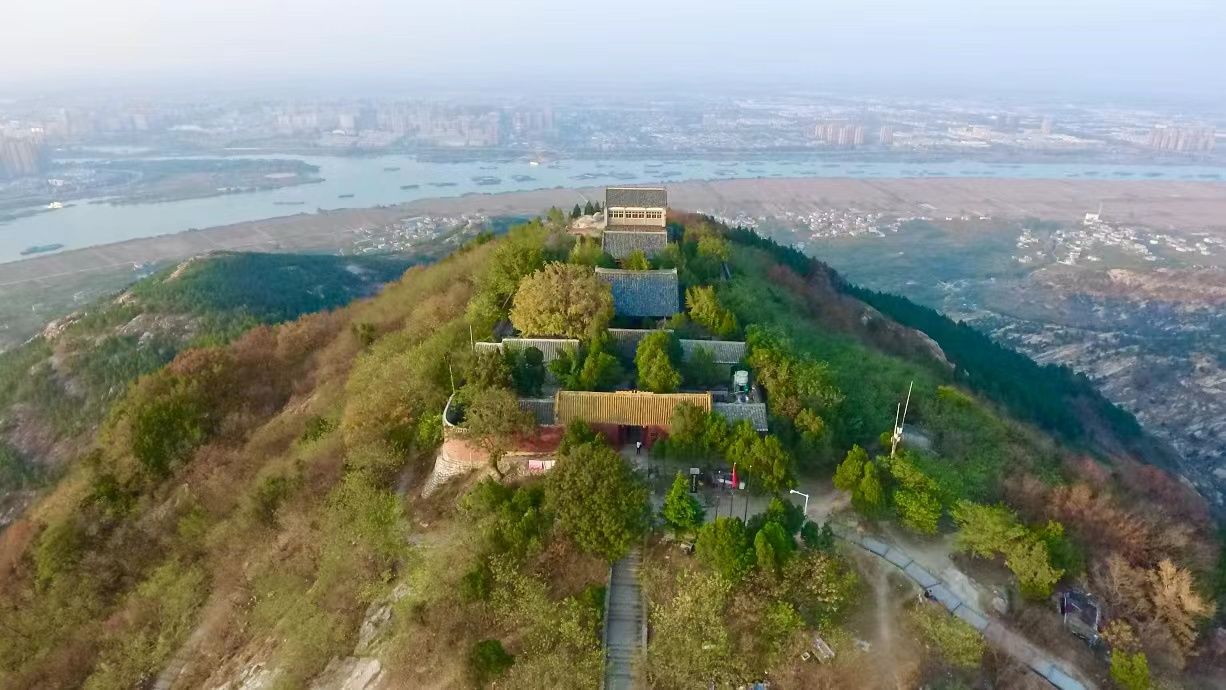
Bengbu Yuhuicun Yizhi.
-
Dining: After your visit, sample local cuisine at nearby restaurants. Bengbu is famous for its Huaiyang cuisine, particularly freshwater fish dishes.
-
Accommodation: A variety of hotels and guesthouses are available in Bengbu, catering to different budgets. Consider staying in the city center for convenience.
-
Transportation: Public transport options are plentiful, with local buses, taxis, and ride-sharing services making it easy to navigate the city.
Cultural Events
Keep an eye out for local festivals and events that coincide with your visit. These can provide a deeper understanding of the cultural significance of Yuhuicun Yizhi and the surrounding area. Events may include traditional dance performances, food festivals, and educational workshops related to archaeology and history.
Conclusion
Visiting Yuhuicun Yizhi offers a unique glimpse into ancient Chinese civilization and the evolution of the Huai River region. Whether you’re an archaeology enthusiast, a history buff, or simply seeking an enriching experience, this site promises to be both educational and inspiring. Enjoy your journey through time!
Tickets, Hours, and Booking
Visiting the Yuhuicun Yizhi archaeological site offers a unique glimpse into ancient Chinese civilization, particularly the Longshan culture. To ensure a smooth experience, here’s everything you need to know about ticketing and access to this remarkable heritage site.
Ticket Information
-
Admission Fee: Entry to the Yuhuicun Yizhi site is free of charge. This allows visitors from all walks of life to explore and appreciate its historical significance without the barrier of an admission fee.
-
Operating Hours: The site is open daily from 8:00 AM to 6:00 PM. It’s advisable to visit during daylight hours to fully enjoy the outdoor exhibits and the surrounding natural beauty.
-
Guided Tours: While self-exploration is encouraged, guided tours are available for those seeking a deeper understanding of the site’s archaeological significance. These tours can typically be arranged on-site.
-
Location: Yuhuicun Yizhi is situated on the southern foothills of Tushan Mountain, on the east bank of the Huai River in the Yuhui District of Bengbu, Anhui Province. It is easily accessible via local transportation.
-
Nearby Attractions: Consider pairing your visit to Yuhuicun Yizhi with other local attractions such as the Zhanggong Mountain Scenic Area or the Huai River Ecological Park for a fulfilling day of exploration.
-
Visitor Tips:
- Comfortable walking shoes are recommended, as the site involves outdoor walking and exploration.
- Bring water and snacks, especially during warmer months, as amenities may be limited nearby.
- Photography is permitted, so don’t forget your camera to capture the stunning vistas and ancient artifacts.
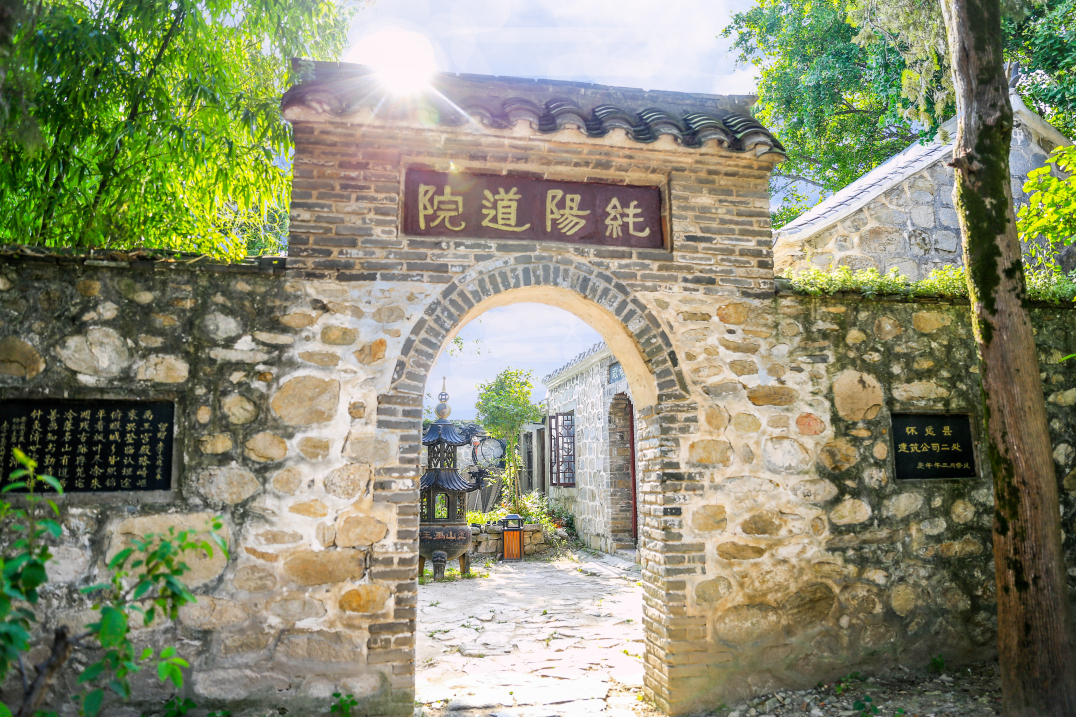
Bengbu Yuhuicun Yizhi.
Whether you’re a history enthusiast or just curious about China’s rich cultural heritage, Yuhuicun Yizhi promises a memorable experience. Enjoy your visit!
How to Get There
Getting to and around Yuhuicun Yizhi (禹会村遗址) in Bengbu requires some planning, especially for international visitors unfamiliar with the area. Here’s a comprehensive guide to navigating your way to this fascinating archaeological site.
By Air
The nearest major airport to Yuhuicun Yizhi is Bengbu Airport (蚌埠机场), located about 10 kilometers from the city center. This airport offers domestic flights from major cities like Beijing, Shanghai, and Guangzhou. For international travelers, the closest international airport is Nanjing Lukou International Airport (南京禄口国际机场), approximately 130 kilometers away. From Nanjing, you can either take a domestic flight to Bengbu or use other modes of transportation to reach the site.
By Train
Bengbu serves as a significant railway hub in Anhui province, with the Bengbu Railway Station well-connected to major cities across China. High-speed trains from cities like Shanghai, Beijing, and Hefei provide a comfortable and efficient way to travel. Once you arrive at Bengbu Railway Station, you can take a taxi or local bus to Yuhuicun Yizhi.
By Bus
For those traveling within Anhui province or nearby areas, long-distance buses are available at Bengbu Long-Distance Bus Station. Buses frequently depart from major cities, and the journey is often economical. Upon arrival at the bus station, you can take a local taxi or public transportation to the archaeological site.
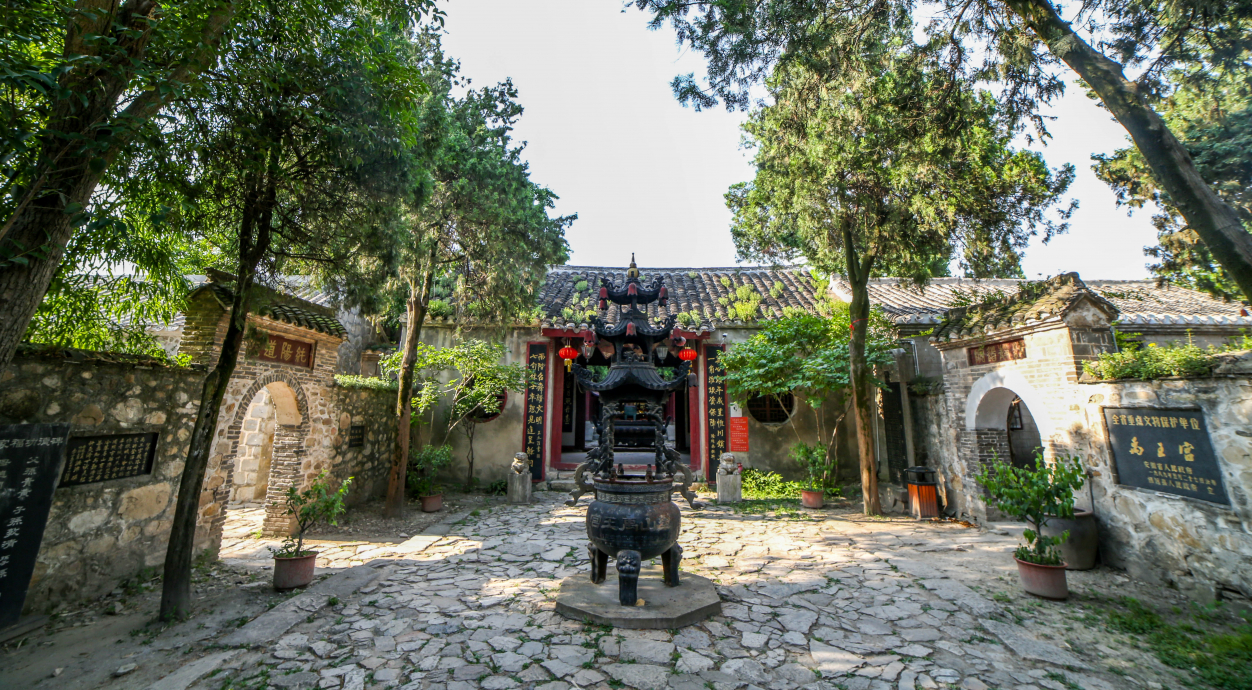
Bengbu Yuhuicun Yizhi.
Local Transportation
Once in Bengbu, getting to Yuhuicun Yizhi is straightforward. Taxis are readily available, and ride-hailing apps like Didi Chuxing are widely used, making it easy to book a ride directly to the site.
Public buses can also take you to the vicinity of Yuhuicun. It is advisable to check local bus routes or ask for directions at your hotel or the railway station to determine the best bus options.
Nearby Attractions
If you plan to explore more of Bengbu, consider visiting other nearby attractions such as the Bengbu Museum, Longzi Lake, and Zhanggongshan Park. Local transportation options remain consistent, with taxis and public buses serving these areas regularly.
Tips for Travelers
- Language: English may not be widely spoken in Bengbu, so having a translation app or a phrasebook can be helpful.
- Cash: While digital payments are prevalent, it’s wise to carry some cash for small purchases or transportation.
- Weather: Check the local weather forecast and dress appropriately, as the site is outdoors and may require walking.
With this guide, you should be well-prepared to navigate your way to Yuhuicun Yizhi and enjoy the rich historical and cultural experiences it offers.
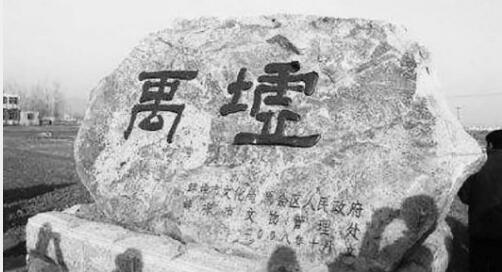
Bengbu Yuhuicun Yizhi.
Local Cuisine and Accommodation
When visiting the Yuhuicun Yizhi (禹会村遗址) in Bengbu, Anhui Province, exploring the local cuisine and finding comfortable accommodation can significantly enhance your experience. Here’s a guide to the best options in the area.
Culinary Delights
Bengbu is known for its rich culinary heritage, and visitors will find a variety of local dishes that highlight the flavors of the region. Here are some must-try foods:
-
Lao Hua Bin Chicken Soup (老淮滨鸡丝汤): A local specialty, this comforting dish features tender chicken in a flavorful broth. It’s a perfect meal to warm you up after a long day of exploring the archaeological site.
-
Braised River Prawns (红烧大虾): Renowned for its fresh seafood, Bengbu offers this delightful dish, which is often cooked with a blend of spices to enhance its natural sweetness.
-
Steamed Buns with Pork (肉夹馍): These soft buns filled with savory pork are a popular street food option that you can find in the bustling markets of Bengbu.
-
Ice Wine Fermented Rice (冰酒酿): A sweet treat made from fermented glutinous rice, this dessert is a signature of the region and is perfect for those looking to indulge in something uniquely local.
-
Bengbu-style Dumplings (蚌埠饺子): These dumplings are filled with various meats and vegetables, often served with a tangy dipping sauce that adds an extra kick.
Where to Stay
When it comes to accommodation, Bengbu offers various options ranging from budget-friendly hostels to more luxurious hotels:
-
Bengbu Jinling Hotel: Located conveniently near the city center, this hotel provides comfortable rooms and modern amenities. It’s an excellent choice for those who want easy access to local attractions, including the Yuhuicun Yizhi.
-
Hanting Express Hotel: Known for its affordability and cleanliness, this chain hotel is a great option for budget travelers. It’s close to popular dining options and shopping areas.
-
Bengbu Huayi International Hotel: For a more upscale experience, this hotel offers elegant rooms and top-notch services. Guests can enjoy amenities like a spa, fitness center, and an on-site restaurant serving local and international cuisine.
-
Hostel Options: For backpackers or those seeking a more social atmosphere, consider staying at one of the local hostels. They often provide shared accommodations and are a great way to meet other travelers.
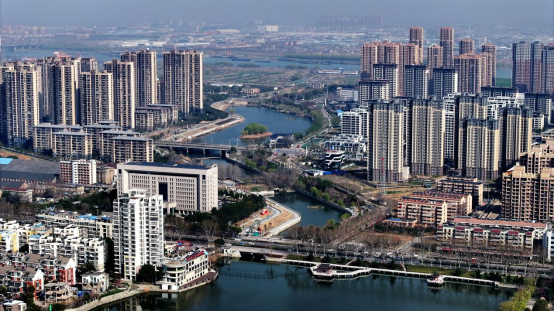
Bengbu Yuhuicun Yizhi.
Final Thoughts
Exploring Bengbu’s Yuhuicun Yizhi is not just about discovering ancient history; it’s also about indulging in the local flavors and enjoying comfortable accommodations. Whether you’re savoring a bowl of chicken soup or resting in a cozy hotel, your experience in this vibrant city promises to be memorable.
Frequently Asked Questions
-
Where is the Yuhuicun Yizhi located?
The Yuhuicun Yizhi, also known as the Yuhui Village Site, is situated in the southern foothills of Tushan, within the Yuhui District of Bengbu City, Anhui Province, China. It lies east of the Huai River. -
What is the historical significance of the Yuhuicun Yizhi?
The site is recognized as one of the largest archaeological remnants of the Longshan culture in the Huai River Basin. It provides crucial insights into the civilization process of the region, particularly relating to rituals and early community organization during the late Neolithic period. -
What types of relics have been discovered at the site?
Excavations have uncovered various artifacts, including pottery, stone tools, animal bones, and ritual pits. Notable findings include large ritual platforms and burial pits that indicate complex ceremonial practices. -
Is Yuhuicun Yizhi open to the public for visits?
Yes, the site has been designated as a national archaeological park and is open to visitors. Tourists can explore the remnants and learn about the historical context through informative displays. -
What are the visiting hours for the Yuhuicun Yizhi?
The site typically operates from 9:00 AM to 5:00 PM. However, it is advisable to check for seasonal variations or public holiday arrangements prior to visiting. -
Are there guided tours available at the site?
Yes, guided tours are often available, providing deeper insights into the historical and cultural significance of the site. Visitors can inquire at the entrance or through local tourism offices for more information. -
What nearby attractions can I visit while in the area?
Visitors to Yuhuicun Yizhi can also explore nearby attractions such as the Huai River Scenic Area, the Bengbu Museum, and local cultural sites that highlight the rich history of the region. -
How can I get to Yuhuicun Yizhi from downtown Bengbu?
The site is accessible by public transportation, including buses and taxis. It is approximately a 20-minute drive from downtown Bengbu, making it convenient for day trips.
Final Thoughts on Your Trip
As you conclude your journey through the fascinating history of the Yuhuicun Yizhi site in Bengbu, it is essential to reflect on the profound cultural significance it holds. This archaeological treasure not only unveils the rich tapestry of the Longshan culture but also serves as a testament to the region’s pivotal role in the evolution of ancient Chinese civilization. The remnants of ceremonial practices and the intricate artifacts unearthed here echo the stories of our ancestors, reminding us of their quests for understanding and connection to the divine.
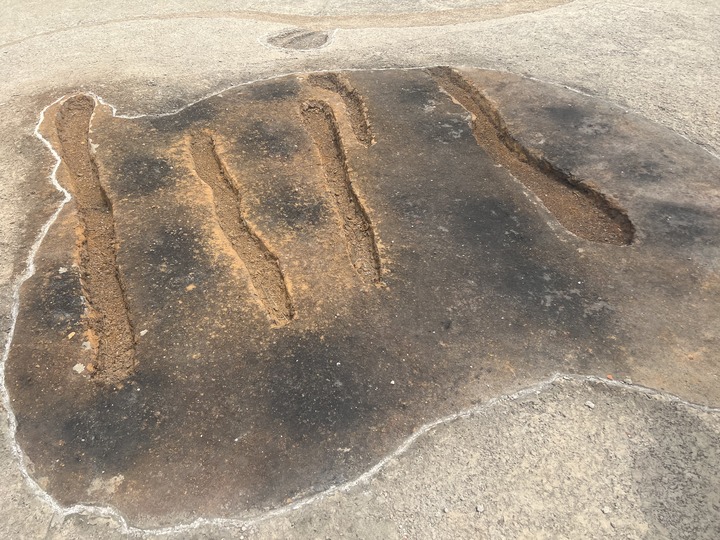
Bengbu Yuhuicun Yizhi.
Visiting Yuhuicun Yizhi offers an immersive experience that transcends mere sightseeing; it invites you to engage with the past and appreciate the depth of human history. Whether you are an archaeology enthusiast, a history buff, or simply a curious traveler, the site promises a unique glimpse into a world where culture and spirituality intertwined.
As you leave, carry with you the spirit of inquiry and respect for the heritage that has shaped this vibrant region. Let the echoes of the past inspire your own adventures and discoveries, reminding you that every journey is a step into the stories that have come before us. In embracing the enduring legacy of places like Yuhuicun Yizhi, we not only honor our history but also pave the way for future generations to explore, learn, and be inspired.
